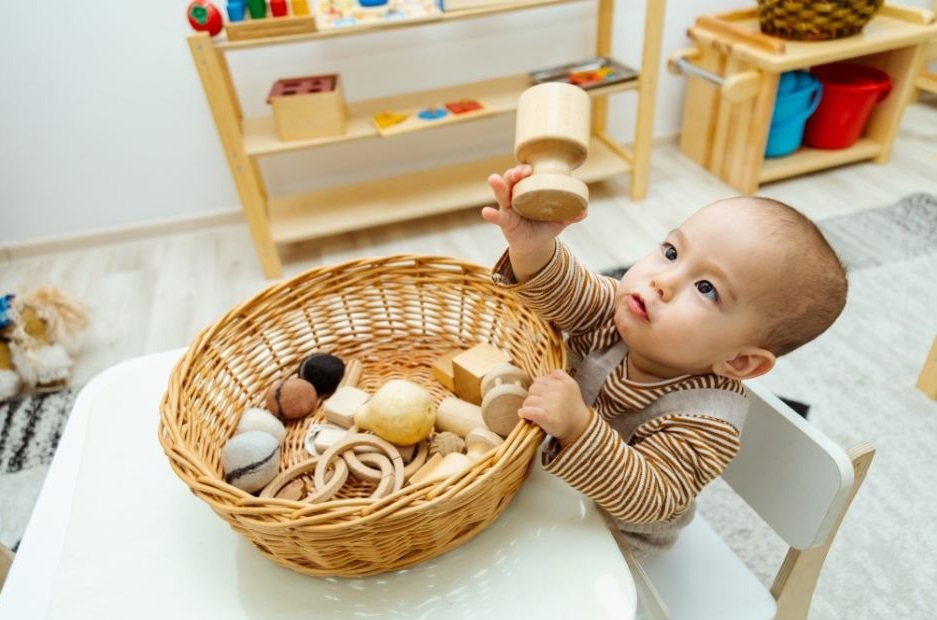This is something I see so often in the classroom, in the park or even at home. The constant rush rush rush, and never a moment to stop and smell the roses. It follows on from the expectations we place on children to always have to operate at our level, as an adult.
Children actually operate on a much slower pace than we do, which is why sometimes a child won’t respond for a few seconds and just look at you instead. They actually aren’t ignoring you or not-responding on purpose, they just need a moment to process the information that has been thrown at their way.
Explore the fundamentals of Montessori parenting with this free video by Sylvia Arotin, offering insights and strategies to empower and educate your child.
So whilst we are operating at one hundred miles an hour, multitasking and throwing fifty instructions to those people around us, children (toddlers especially) are still processing the first few words of the first instruction, or trying to figure out which shoe goes on which foot before they think about getting their bag.
It is easy for us to forget that to operate on their level we just have to slow down (which can be so hard to do) and move our bodies in a way that will show them slowly and directly what needs to be done. Instead of loudly stating “come on, pack away, come on grab your plate, your cup is here, look, you have your cup too”. I would state “It’s time to pack your dishes away”, pause, “plate” and either point to or pick the plate up with two hands to model what to do. This way you are not overwhelming the child with ten different instructions and gestures at the same time, but breaking it up, allowing them time to respond, and then modelling if need be.
They just need some extra time to process words and actions, imagine you are operating in super slow motion, for a child to have success in mastering an activity, the slower and the more focused you are on it, the more they can concentrate and take in what you are showing them. Remember less is more, the less you instruct and speak while you are showing them the better they are able to take in what you are saying. Separate your actions and words for very young children this will also help them retain what you are showing them.
I know it’s hard when you are in your daily routine, but if you can, try and restrain from stating back to back instructions and just slow down your own mind and actions so children are allowed some time to respond and follow through. You may even have a moment to stop and smell the roses.






